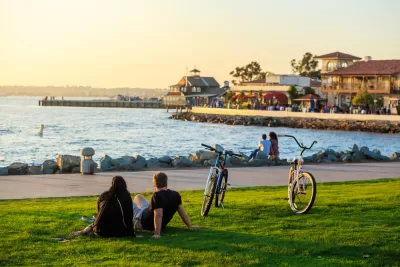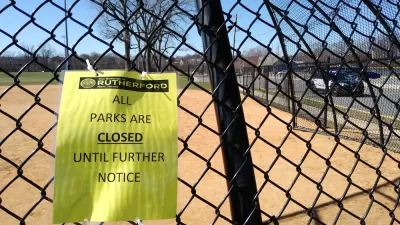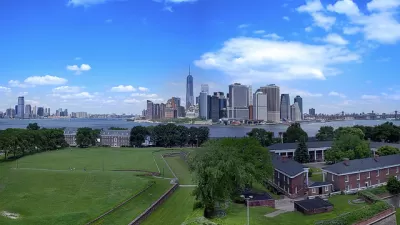The San Diego Planning Department wants to change the system that currently funds improvements to public amenities, facing considerations about the implementation and legality of the proposed alternative.

The San Diego planning department hopes to get rid of a development impact fee system that currently funds such public amenities as parks, libraries, and streets, reports MacKenzie Elmer. Under the system, newer and more affluent neighborhoods get more improvements than their less lavish counterparts. Under the fee system, developers pay a different (often outdated) fee in each neighborhood based on the cost of the improvements and the expected amount of development.
The fees vary dramatically neighborhood to neighborhood. "The highest fees in the county are in Del Mar Mesa, $122,048 per home. They’re lowest in San Pasqual Valley, home to the San Diego Zoo Safari Park, at $2,054," says Elmer. The city wants to share the development fees citywide, bringing up questions about which projects would be prioritized and whether it's legal to spend fees in a neighborhood that was collected somewhere else. The ultimate power lies with the mayor who controls the development impact fees as .01% of the annual budget.
FULL STORY: If Your Local Park Sucks, This Is Probably Why

Study: Maui’s Plan to Convert Vacation Rentals to Long-Term Housing Could Cause Nearly $1 Billion Economic Loss
The plan would reduce visitor accommodation by 25,% resulting in 1,900 jobs lost.

North Texas Transit Leaders Tout Benefits of TOD for Growing Region
At a summit focused on transit-oriented development, policymakers discussed how North Texas’ expanded light rail system can serve as a tool for economic growth.

Why Should We Subsidize Public Transportation?
Many public transit agencies face financial stress due to rising costs, declining fare revenue, and declining subsidies. Transit advocates must provide a strong business case for increasing public transit funding.

How Community Science Connects People, Parks, and Biodiversity
Community science engages people of all backgrounds in documenting local biodiversity, strengthening connections to nature, and contributing to global efforts like the City Nature Challenge to build a more inclusive and resilient future.

Alabama: Trump Terminates Settlements for Black Communities Harmed By Raw Sewage
Trump deemed the landmark civil rights agreement “illegal DEI and environmental justice policy.”

Dear Tesla Driver: “It’s not You, It’s Him.”
Amidst a booming bumper sticker industry, one writer offers solace to those asking, “Does this car make me look fascist?”
Urban Design for Planners 1: Software Tools
This six-course series explores essential urban design concepts using open source software and equips planners with the tools they need to participate fully in the urban design process.
Planning for Universal Design
Learn the tools for implementing Universal Design in planning regulations.
City of Santa Clarita
Ascent Environmental
Institute for Housing and Urban Development Studies (IHS)
City of Grandview
Harvard GSD Executive Education
Toledo-Lucas County Plan Commissions
Salt Lake City
NYU Wagner Graduate School of Public Service





























